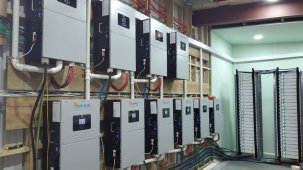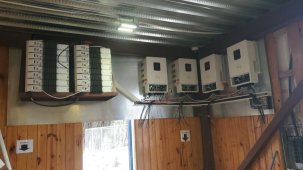The same way any other risk that is possible, wind, fire, hail, flood, hurricane. They already know from actuarial tables and the history of losses what to expect for any given risk in any area. From that data, the losses are computed and and premiums adjusted for the losses.
Your argument for inspections to cover previous faulty wiring is comical. Having gutted houses, fished plenty of wire in houses thru existing walls and installing service panels, I can say a home inspector will never find those things that could result in a wiring fault fire. You find splices in walls that are not accessible, you find cloth covered knob and tube with scorch marks in the joists or studs, you find changes in a wire size with the circuit fused for a larger amperage plus many more faults.
The main purpose of the electrical inspection in my state is proper bonding and grounding at the service panel and any subpanels. There are a few other things that are just common sense and if you know anything about proper wiring it won't be a problem. The only other main sticker is hard wiring smoke alarms in new construction.




